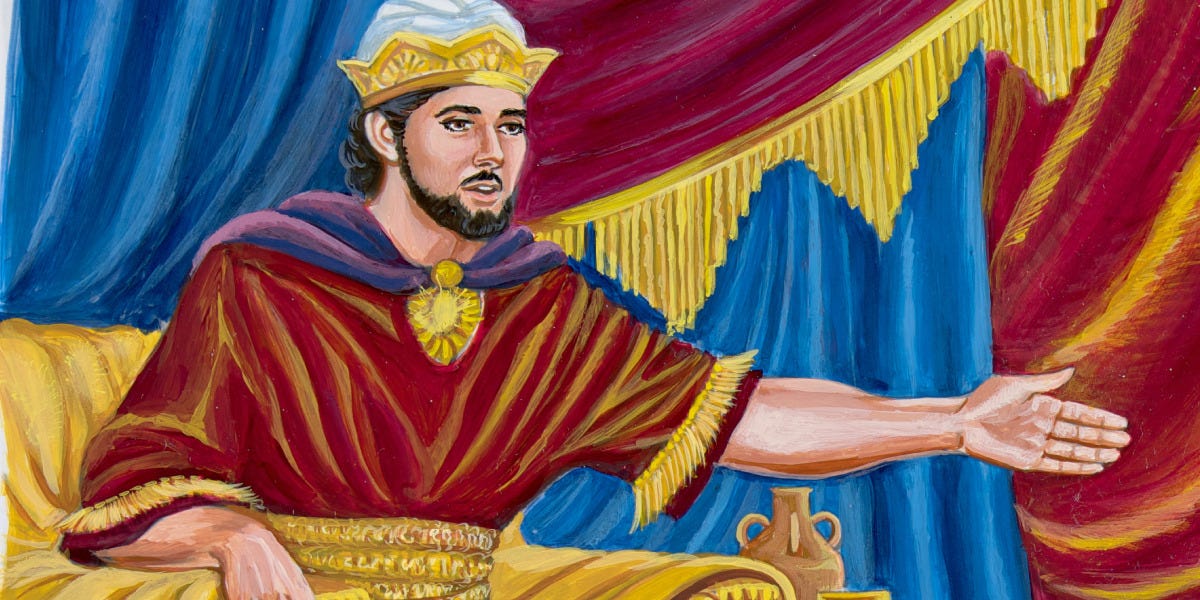Cis Too Shall Pass
The person who encouraged me to start this blog and without whom I would never have gotten it off the ground mentioned that she loved the saying “This too shall pass” and gave me a ring inscribed with that declaration. According to what I recall of her telling, which echoes Jewish folklore, King Solomon spoke those words in order to cope with his symptoms of bipolar disorder. My understanding is that the phrase’s origins are shrouded in legend, its authorship unknown.
In any case, it’s a powerful statement. It illustrates Judaism’s longstanding fascination with duality – how to balance opposites and bridge contradictory tendencies in human nature. An example from the Torah comments, in an anatomical context, on that issue.
The familiar translation of Genesis 1:27 reads: “God created the human in His image. In God’s image He created him. Male and female He created them.” The language involves an unaccountable switch from “created him” to “created them” and specifies that they’re “male” and “female.” So we have the creation of a single, male human whose identity the text goes on to qualify in the plural as both female and male.
Rabbi Yirmeyah ben Elazar (3rd century CE) pondered this verse and explained: “In the hour when the Holy Blessed One created the first human, He created him androgynous” (Genesis Rabbah 8:1), i.e., “of indeterminate sex” (Apple Dictionary). Welcome to our brave new world of sexual and gender identity politics!
In the U.S., folks are furiously facing off over LGBTQ+ rights, each side claiming the moral high ground. This culture skirmish accentuates sharp divisions within our body politic and not only fundamental disagreement over fact but basic inability to communicate across ideological lines. Jewry, too, is divided in its attitudes and behavior on the subject.
Traditional Jewish religion and its present-day proponents are decidedly conservative in accepting the conventional male-female binary (with a bias in favor of men over women) as the governing premise of all social existence and a hierarchy in which males rule over females. Think of the traditional morning blessing that has a man express gratitude to God “who has not made me a woman” and a woman express appreciation to God “who has made me according to His will.” The liturgical language presents God as male. Yet, Rabbi Yirmeyah’s midrash anticipates a sense, manifesting in today’s sexual and gender politics wars, of ambivalence over gender as a function of biology.
He is questioning a widely assumed correlation between sex and gender: belief that one’s biologically assigned sex must correspond with one’s socially assigned gender. A term for males and females who fit that traditional model is “cisgender” (“cis” being Latin for “on this side of”). By contrast, “transgender” refers to someone whose self-understanding gender-wise does not match that person’s birth sex. Increasing refusal to view “gender dysphoria” (“the condition of feeling one’s emotional and psychological identity to be at variance with one’s birth sex” [Apple Dictionary]) as a medical (more specifically, psychiatric) problem – akin to other mental “disorders,” such as what might’ve afflicted King Solomon – aligns with emergent skepticism about the correctness of defining gender identity in a categorical, rigid way lining up neatly with people’s DNA and other biological traits.
To say – at the very beginning of our Torah, or in an ancient midrash – that the first human was both male and female begins to call into question ages and ages of received wisdom regarding our sexuality and gender formation. Are we witnessing the fading of an ancient worldview; has Judaism perhaps always been open to the notion that cis too shall pass?
Progressive-leaning siddurim/prayerbooks, in a nod to women’s rights, dispensed entirely, in their versions of the Morning Blessings, with the above-mentioned standard wording showing a preference for men over women. One popular replacement, she’asani betzalmo/“who has made me in His image,” overrides the reflexive cisgender binary to some extent. Such language brings us back in a gender-inclusive way, reminiscent of our Genesis passage, to the idea of our being made in God’s image but still does not resolve another problem: the view of God as male.
Instead, for practice, try the following: Upon awaking with the dawn, reflect for a minute on the fact that you yourself are a perfect reflection of all that is good and a source of delight in the universe.
Doing this might be a good way to start your day.
King Solomon (https://assetsnffrgf-a.akamaihd.net/assets/m/1101978118/univ/art/1101978118_univ_lsr_xl.jpg)
Israel Pride Parade, 2023 Jack Guez / yahoo!news (https://s.yimg.com/ny/api/res/1.2/quasMDisvgF5pAdTIWNqZA--/YXBwaWQ9aGlnaGxhbmRlcjt3PTE1MzY7aD0xMDIy/https://media.zenfs.com/en/afp.com/c774d4d5bcaa54aad405f01fe6aa1d80)





